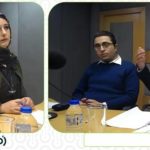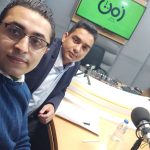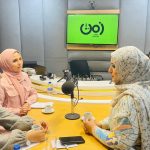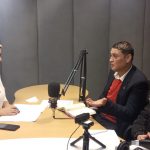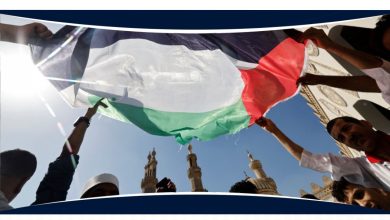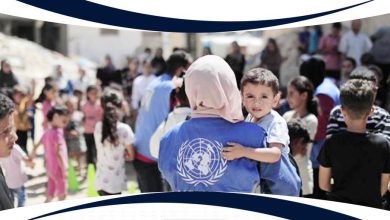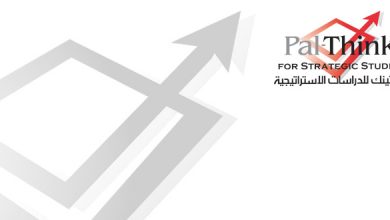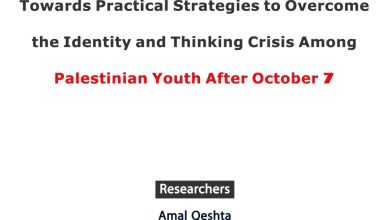Pal-Think Launches Radio Podcast entitled “Democracy and Youth.”
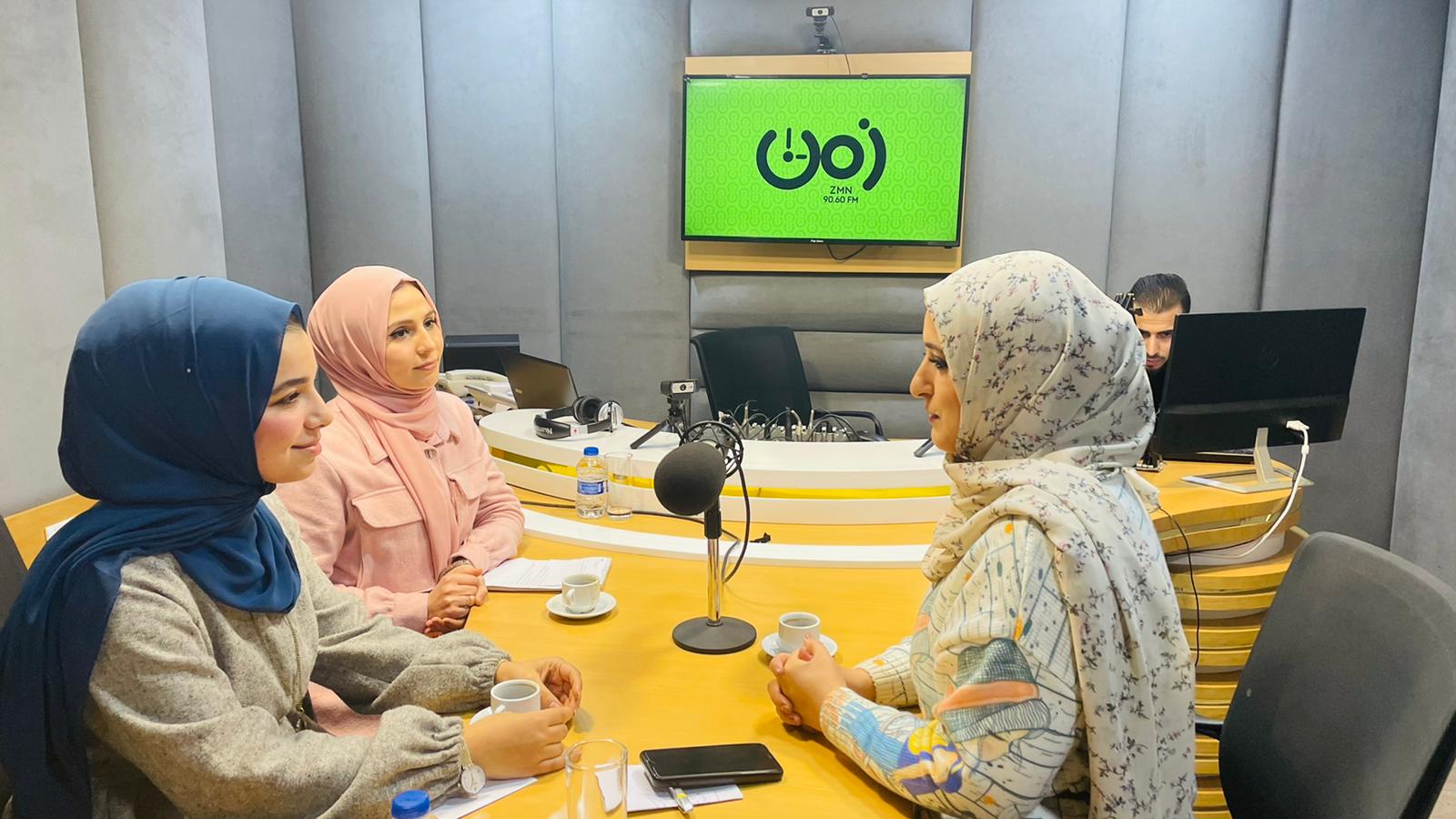
Pal-Think for Strategic Studies has launched a radio podcast entitled “Democracy and Youth” which aims to involve youth in the development of society and to promote the concepts of democracy by finding solutions to community and rights issues. This is via Zmn FM on Mondays and Wednesdays as part of the project: ” Empowering Civil Society Role to Achieve Palestinian Elections”, implemented by Pal-Think and funded by the Government of Canada.
This radio podcast comes by the participation of a group of young activists, who are alumni of the training program: “Promoting youth political participation and disseminating the concepts of democracy” within the project. They in turn passed on the knowledge they received to the rest of the society’s groups through awareness sessions and discussions on rights and democratic concepts.
The first radio podcast was entitled “The role of youth in decision-making” with the participation of the consultant on economic issues and development, Dr. Raed Hillis and the youth activist, Ms. Asil Zainelddin. They mentioned the concept of youth according to the United Nations and Palestinian law, the challenges to youth participation in political life, and the role of youth in developed countries.
Dr. Raed clarified that a fifth of the Palestinian society is the educated youth. 18 young men and 23 young women out of every 100 are with a bachelor’s degree.
In her turn, Ms. Asil has pointed out the influence of division, the exclusivity of political life by some parties and preventing youth from accessing decision-making positions. She also reviewed the economic, social and educational challenges to the active participation of young people in society.
The second podcast was entitled “The right to access information” with the participation of: Bakr al-Turkmani, an investigation coordinator in the independent commission, the lawyer Ashraf Sokar, and Mr Malik al-Jaru, a youth activist.
Mr Malik opened the podcast by defining the right to access information, its origin, development and stages of its adoption by the public commission of the United Nations in 1948. He addressed the importance of the disclosure of information by the State. And he reviewed a study by the Aman Society showing that 90% of citizens claim the right to access information.
In his turn, the lawyer Ashraf Sokar presented the Palestinian laws that state for the right to access information: the Palestinian basic law for 2002, the Palestinian amended basic law for 2003, the press and publication law for 1995, the law of evidence and its article 103, the rules of procedure of the legislative chamber and the code of penal procedure. He also explained the principles of the right to access information and the cases in which the law provided for the non-dissemination of information.
He mentioned the legally authorized to disclose information: the general information service, Palestinian central bureau of statistics, the independent commission for human rights, the Palestinian initiatives for the promotion of global dialogue “MIFTAH”, the Palestinian NGOs network, Palestinian information center, Palestinian media agency “WAFA”, and Legislative Council.
In turn, the independent commission for human rights’ investigative coordinator Bakr al-Turkmani said that although the right to access information is important, it is still an exclusive right for the governing parties in Palestine.
He highlighted that many ministries do not disclose their fiscal budgets causing vulnerability assessment of the public budget policies. He also noted that officials could not be held accountable for the absence of the right to access information from their proper sources.
He concluded by mentioning the legal procedures to be followed when requesting certain types of information. He asserted that the origin in matters is accessibility unless there is a provision restricting it.
The third podcast discussed the issue of gender-based violence with Ms. Heba Al-Danaf who is a human rights activist and works at Aisha Association for Women and Child Protection in addition to the two activists: Ms. Marwa Qeshta and Ms. Ahed Abdallah.
Ms. Marwa began by defining gender, the difference between sex and gender and gender-based violence such as physical, legal, sexual, psychological and verbal which are most common among women.
She noted that although Palestine had signed the international covenant on political and cultural rights, the CEDAW convention and the universal declaration of human rights, it had not aligned its laws. She also mentioned some examples of girls forced into early marriage and killed by their husbands.
She pointed out the importance of analyzing gender awareness to bring about change in society, to narrow the gap between men and women and to empower women economically, legally and politically. She viewed many common behaviors and concepts that are harmful to women and adopted by society: early marriage and exclusion from education.
The human rights activist Heba Al-Danaf defined gender-based violence: any action against any person who is weak-willed because of culture, customs and traditions noting that the majority of victims of gender-based violence are females. She presented the three cases of social violence: violence based on gender, age and status as disabilities’ persons. She confirmed that many of the victim’s violence cases don’t mention what happened to them; she stressed the need to align civil society interventions with government policies to reduce the prevalence of gender-based violence.
She concluded by saying: “There must be an official institution whose primary function is to stop the outbreak of gender-based violence.”
The designations employed and the representation of material in these meetings do not imply the expression of any opinion whatsoever on the part of the Government of Canada.”

